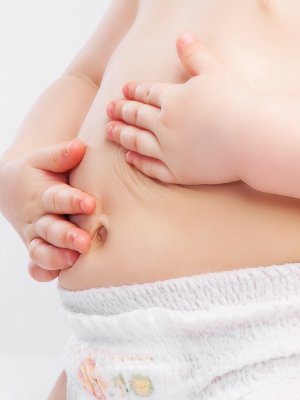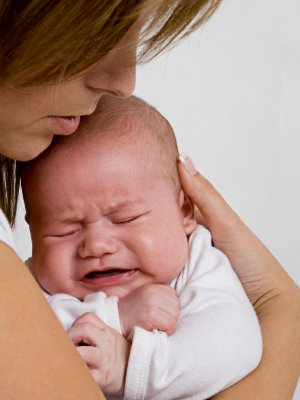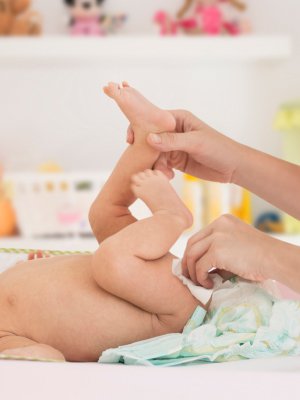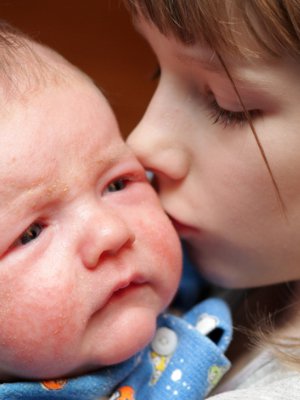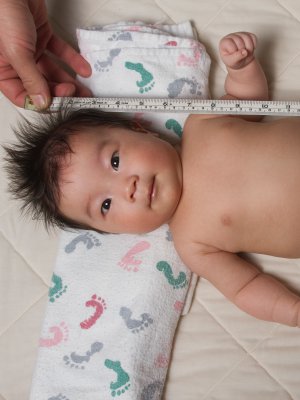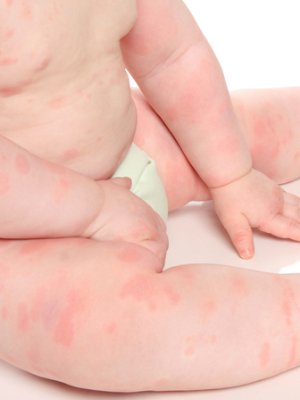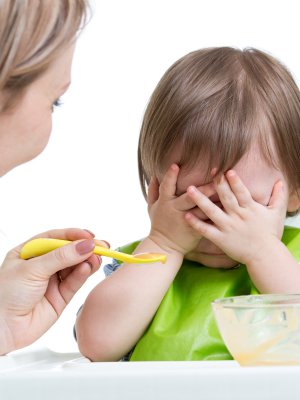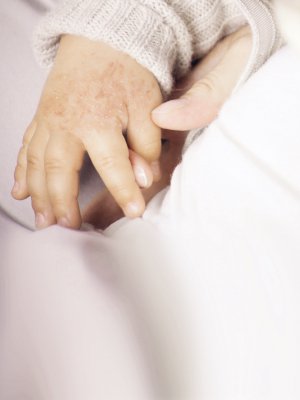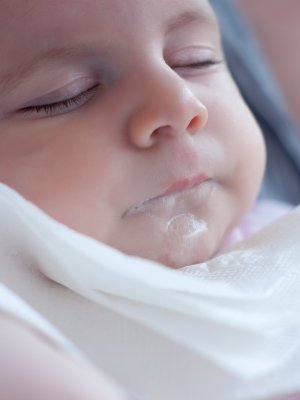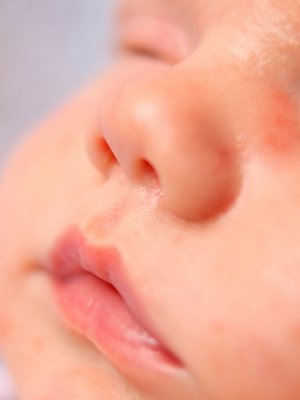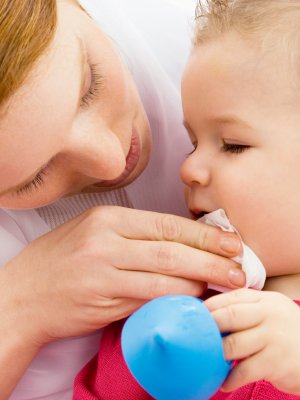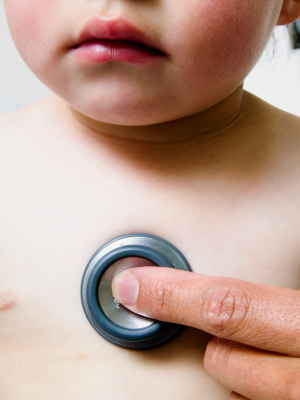RUNNY NOSE AND SNEEZING

We believe breast milk is the best food for infants. When in consultation with their healthcare professional, mothers and families find that optimal breastfeeding is not possible due to their infant’s medical condition, formulas for special medical purposes play a vital role in providing essential nutrients to infants. We have a global commitment to market breast-milk substitutes responsibly.
Runny nose can be identified as streaming mucous from a baby’s nostrils. A baby’s immune system is immature, which makes them more vulnerable to illness. For some babies, it may seem like they have a constant runny nose, however this is perfectly normal and may just be the result of a baby having back-to-back cold virus infections.
Sneezing is a natural reflex mechanism used to clear airborne substances and congestion from the respiratory and nasal passages. It is very common in babies and not usually something to cause concern.
Why does my baby have runny nose and sneezing?
Your baby may:
- Have a food allergy, e.g. Cow’s Milk Protein Allergy (CMPA)
- Have an illness of the upper airways such as a cold virus
- Be inhaling dry air or irritants, such as cigarette smoke and dust
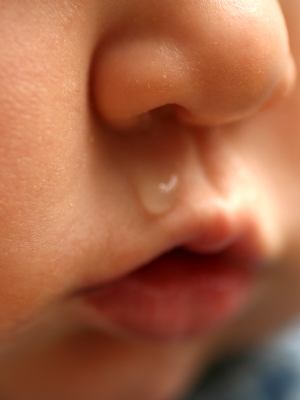
Could it be Cow’s Milk Protein Allergy?
Runny nose and sneezing are common symptoms for babies with CMPA.
Babies with CMPA usually experience more than just one symptom and these symptoms can be very different from one another.
If you think that your baby has a runny nose or is sneezing, it could be CMPA.
You may have even noticed other symptoms (besides runny nose and sneezing), which may affect other parts of your baby’s body.
For a simple and easy way to check common symptoms associated with CMPA, you can use our symptom checker.
In any case, if you have any doubts or concerns about your baby’s health, you should always seek advice from a medical professional as soon as possible.
OTHER SYMPTOMS OF COW'S MILK PROTEIN ALLERGY
IMPORTANT NOTICE: Mothers should be encouraged to continue breastfeeding even when their babies have cow’s milk protein allergy. This usually requires qualified dietary counseling to completely exclude all sources of cow’s milk protein from the mothers’ diet.If a decision to use a special formula intended for infants is taken, it is important to follow the instructions on the label. Unboiled water, unboiled bottles or incorrect dilution can make babies ill. Incorrect storage, handling, preparation and feeding can eventually lead to adverse effects on the health of babies.Formula for special medical purposes intended for infants must be used under medical supervision.


